The rhythm of your heart: The fascinating ways music affects our health
A good song can change your mood and get you tapping your feet. But, as Len Williams writes, it can also have extraordinary effects on our bodies too
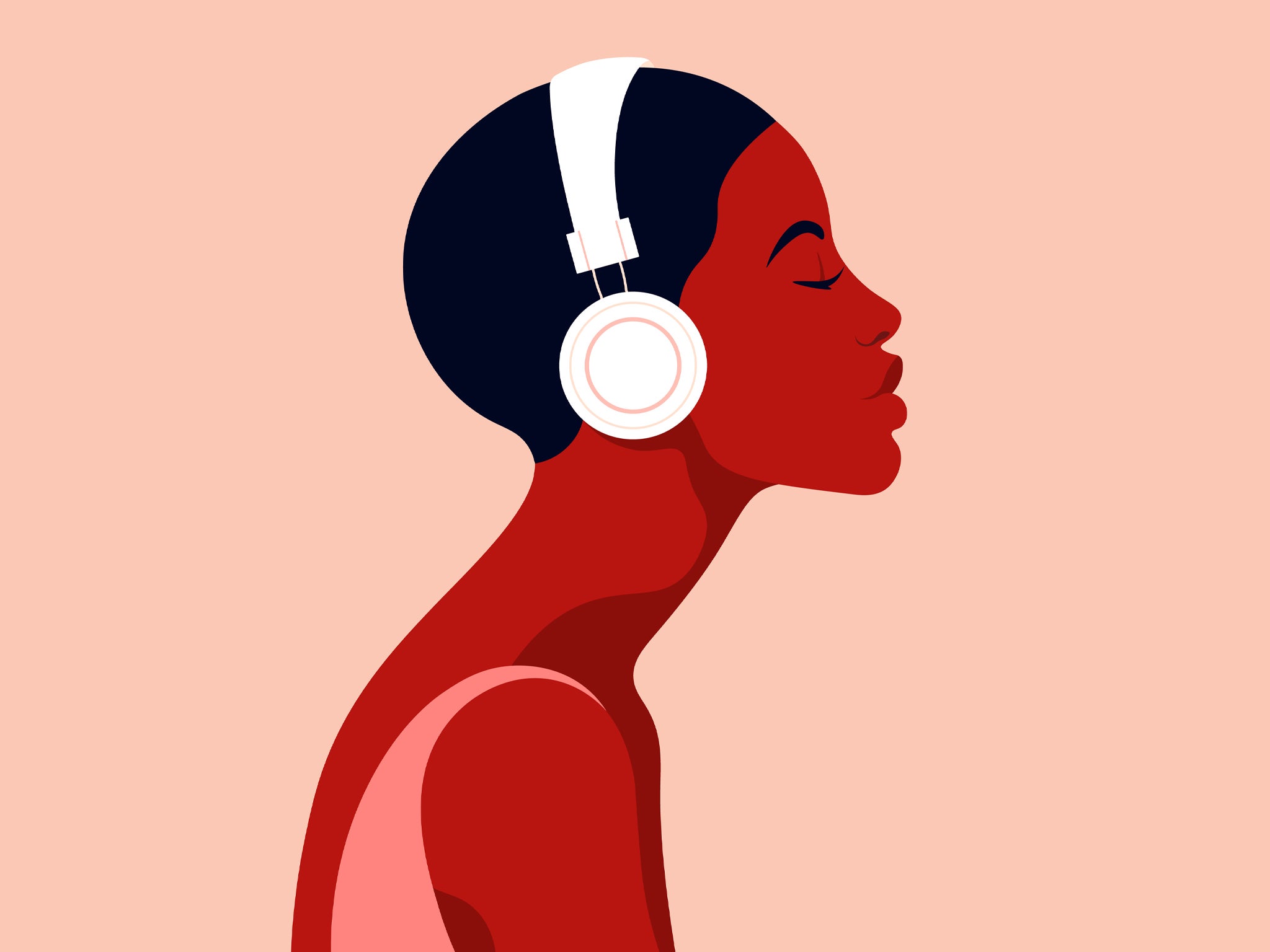
When Charlotte Gabbitas was recuperating from meningitis in Dewsbury hospital, she was initially sceptical about the music therapy sessions on offer. “The music therapist kept inviting me along,” she says, “but I thought it was going to be awkward sitting in a ward listening to music with other people.”
The 28-year-old primary school teacher had loved going to festivals, dancing and travelling; even living in Bahrain for a number of years. But in 2018 she began experiencing severe headaches and found herself struggling to move. Gabbitas ended up in a hospital near Wakefield where her condition worsened – she lost vision in one eye and soon found herself unable to speak.
After four months in the hospital, Gabbitas was moved to a rehabilitation centre for people with brain injuries. It was there that she began to discover the extraordinary power of music.
“I couldn’t believe the situation I was in,” she says. “I was 28, in a wheelchair full time, barely able to speak and had all these feelings I couldn’t express.” However, a music therapist at the hospital kept inviting Gabbitas along to sessions and she eventually agreed. In a music room the therapist started playing pieces from the musical The Greatest Showman, one of Gabbitas’s favourites, and something very unusual started to happen. “For months words had been difficult,” she sayd, “but suddenly I was singing along without stuttering or struggling to think. It was strange, but a brilliant feeling.”
Music has long been known to have an effect on our health. Over 100 years ago, Florence Nightingale recommended the use of music when treating the wounded. And our knowledge of what music can do for people’s wellbeing is continually growing, with studies revealing the incredible ways it can affect our bodies and minds at every stage of life.
For instance, a US study in 2016 showed that when premature babies were played music, they ate more, gained weight faster and slept better. They were also able to leave neonatal care units up to 12 days earlier than those who weren’t played music.
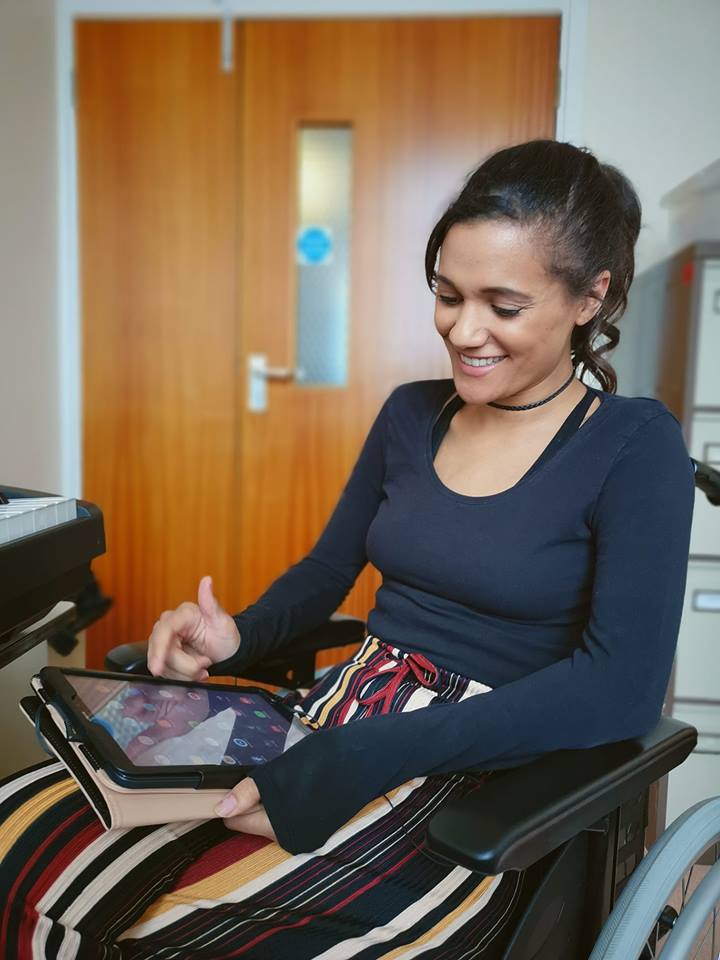
As well as this, at every stage of life, studies have shown that music can help significantly reduce the pain people feel when recovering from injury and illness. Cancer patients who listen to melodies appear to cope better, teens with autism start to communicate better, and Studies indicate music therapy is as good – or even better than – antidepressants to treat severe depression. And at the end of life, music on palliative care wards can manage pain and reduce reliance on drugs. There’s even a Mozart sonata that appears to have a unique capacity to reduce the number of seizures experienced by people with epilepsy.
So how can melody, rhythm and pitch possibly affect our health? Clare Maddocks is a music therapist and member of the British Association of Music Therapists (Bamt). She explains that, “when we listen to music it has a powerful way to reach different parts of the brain and it can tap into our subconscious,” reaching people in ways that more traditional talking therapy cannot. And it’s not just our brains that are affected by music. “It has a strong effect on physiological measures like heart rate and blood pressure,” she says.
For those who’ve lost the ability to speak or found themselves much less mobile than they previously were, the simple capacity to sing, hit a cymbal or bang a drum can be very empowering
Music is deeply entwined with the human experience, and many of the therapists I spoke to mentioned that the first sound we ever hear is a rhythmic beat, that of our mothers’ heart in the womb. Our ability to hear is also widely believed to be the last sense to “switch off” when we die. Listening to, or better yet, creating music lights up neurons in almost every part of the brain and releases “happy chemicals”. Music making happens in every culture around the world, and most people can attest to the power that songs can have on their emotions.
It is these factors that music therapists tap into when treating people with a wide variety of conditions.
Luke Wilson is one of the music therapists who helped treat Gabbitas. The cheerful guitarist is a therapist at the charity Nordoff Robbins, and works with people with drug addictions and brain injuries. “Music uses many different parts of the brain, from fine motor function to memory to song lyrics, to reading social cues” he says. “So even if one part of the brain is damaged and something is interrupted there, it’s likely a gigantic amount is still intact, so [music therapists] can still work with that”.
There’s no such thing as a typical music therapy session, Wilson says, with one-on-one and group sessions progressing in different ways depending on the needs of each patient. That said there’s a lot of co-creation and improvisation involved, with the therapist collaborating with the patient. In his therapy rooms, Wilson has lots of musical instruments laid out, including drums, guitars, pianos and so on, and of course sessions can work with just voice too.
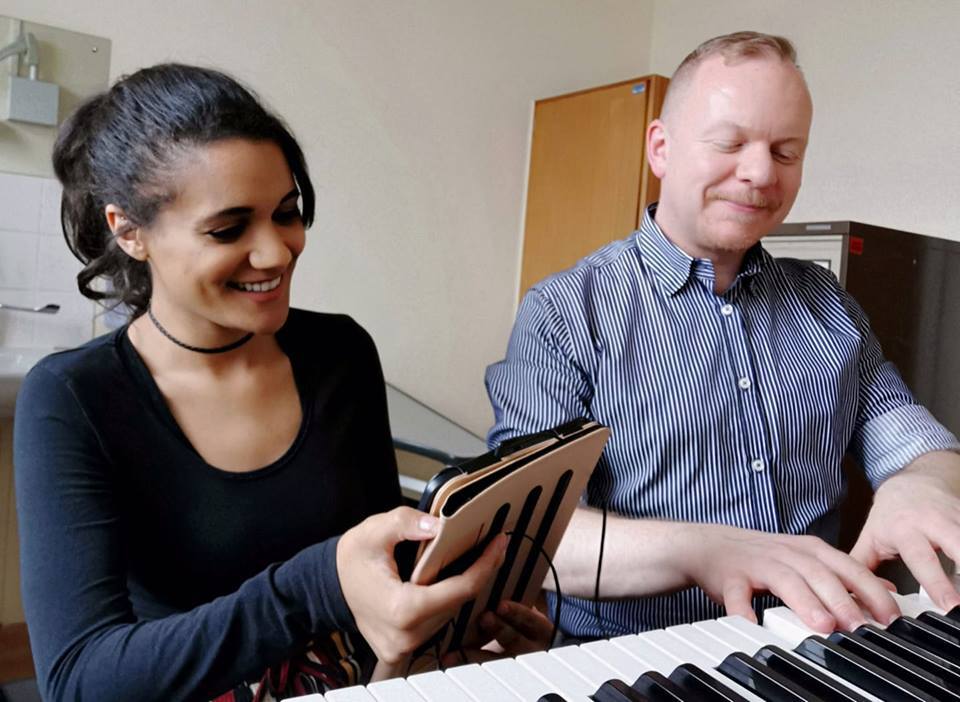
For people with brain injuries in particular, the therapy can be a huge emotional relief. For those who’ve lost the ability to speak or found themselves much less mobile than they previously were, the simple capacity to sing, hit a cymbal or bang a drum can be very empowering. “For some people, recovery isn’t about regaining what was lost but leading as rich a life as possible in their new circumstances,” Wilson says. Music provides that outlet.
This is particularly noticeable in the experiences of people living with dementia. Grace Meadows, a music therapist who works for campaign group Music for Dementia, remembers the first time she saw it in action. On entering a group session she recalls it felt “bleak and desolate and disconnected”, and the patients were glassy-eyed and disengaged. However, the therapist running the session began playing piano and things started to change. “You noticed a shift in their breathing patterns, their posture and movement,” she says. Before long the patients were singing and smiling, some were even dancing.
Since then, Meadows who is mainly a pianist – but dabbles with many other instruments – has worked with many people with dementia and seen the effect it can have on quality of life. Just as significantly she’s seen how it can affect staff in care homes too. After seeing how patients reacted to music, carers would see them more for the people they were, and Meadows says studies have shown this has led to improved levels of care in some places.
Someone who has experienced the power of music for managing dementia first hand is Hillary Knowles. Her husband, Paul, was diagnosed with Alzheimer’s in 2016. Paul had worked for many years in the building trade and loved to travel as well as listen to classical music. To begin with, the condition progressed slowly, but in 2020 things got worse, fast, and he no longer even recognised Hillary. So, for safety’s sake, he was moved to a care home in Lancashire where the couple lived.
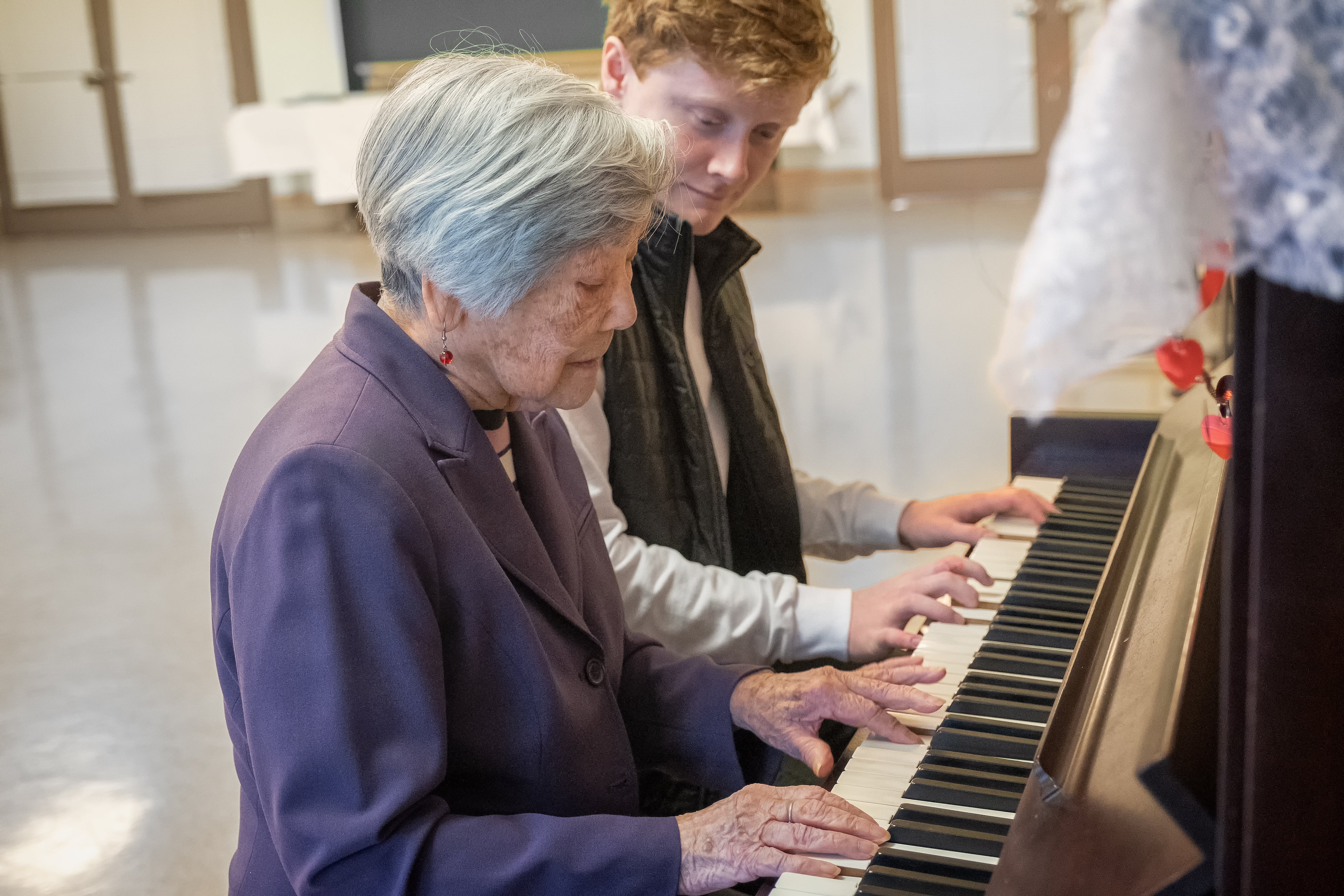
Initially the move to the home was very distressing and Hilary remembers Paul being in a “very bad state”, confused about where he was and what was happening to him. Fortunately, however, there was a music therapist available on site.
“They would go to a room and she would have a keyboard and he’d start to come out of himself,” says Hilary. The therapist soon learned that Paul liked the song “Bring me Sunshine” and he would sing and whistle along when it was played. The difference was palpable, and the sessions seemed to calm Paul down and take his anxiety away. Most profound, for Hilary, was the fact that when she came to visit Paul she brought some of his favourite music and they would listen to it together. “He would look at me with such love, and it was so long since I’d seen it,” she says. Listening to music together seemed to help the person she’d been with for 26 years suddenly re-emerge.
Given the power that music seems to have on people’s health and wellbeing, it might seem an obvious, low-cost intervention to use in various treatment settings
There is a huge range of conditions where music can have an effect. Amelia Clapham is the managing director of Ace Music Therapy, a charity based in Chelmsford. Since this summer, Clapham has been running a weekly therapy session for people living with long Covid. The sessions aim to provide support for both the physical and psychological effects of the condition, which include breathlessness, fatigue and a sense of loss. Each hour-long session differs and depends on the needs of the group but most include an introductory song, some improvising, working with breathing, drumming on exercise balls and walking around the room to music.
There is a research element to the sessions too. “We’re measuring blood pressure and oxygen levels,” Clapham says, “and we’ve seen a reduction in systolic blood pressure.” The charity has also been evaluating attendees’ wellbeing to monitor mental health and, while it might be too soon to draw definitive conclusions, it certainly seems to be helping.
New research into the unexpected benefits of music is emerging all the time. Robert Quon, a researcher at Dartmouth-Hitchcock, a teaching hospital in the US, recently published a study with co-authors on the effects of Mozart’s K448, a sonata for two pianos, for people with epilepsy. Epilepsy researchers have long known that K448 seems to have a unique ability to reduce the frequency of seizures in people with epilepsy, but Quon’s study goes some way to explaining why.
By using an EEG (Electroencephalogram) machine to monitor brainwaves in people with epilepsy the researchers found a reduction in certain types of brain activity typical of the condition when people listened to the sonata. In particular, it seems to affect emotional responses. Quon says this, “supports the theory that Mozart’s K448 may be evoking emotional circuits by setting up internal musical expectations, then violating those expectations, eliciting a positive emotional response.”
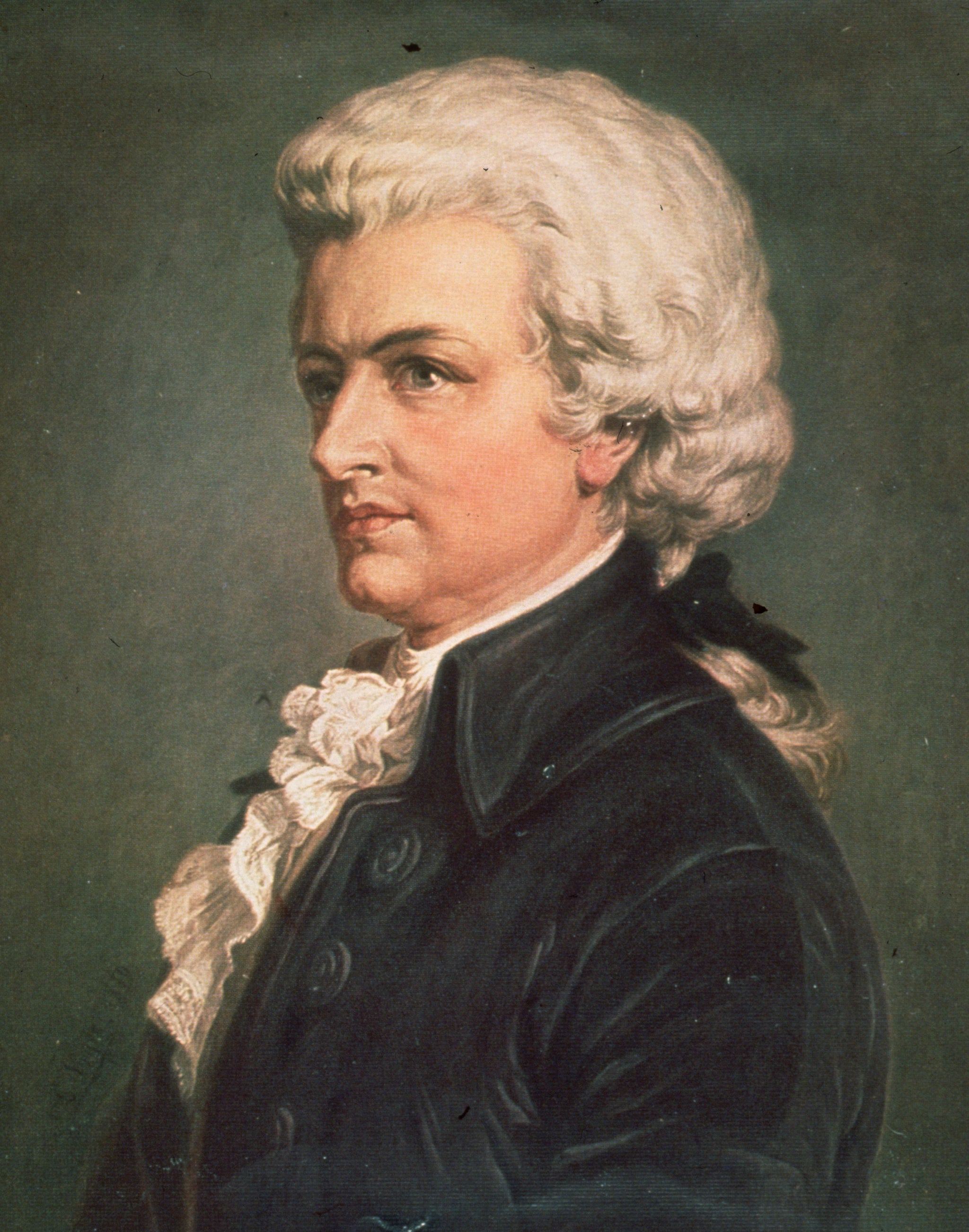
While the researchers are still working out which parts of the music seem to have this effect. Quon says that, “our ultimate dream is to define an ‘anti-epileptic’ music genre.” By working out which parts of Mozart’s K448 help people with epilepsy, it may be possible to replicate this effect consistently with other music, he says.
More access?
Given the power that music seems to have on people’s health and wellbeing, it might seem an obvious, low-cost intervention to use in various treatment settings. However, Maddocks of Bamt says “there’s still a lot of work to be done to get [music therapy] the recognition it deserves.” She says Bamt would love to see more accessibility for this kind of therapy, but that, at present, access to it is still something of a postcode lottery depending on whether or not there are any music therapists working nearby.
One possible solution might be to re-evaluate how we view the arts in society in generally. Professor Paul Crawford is an academic who studies the field of health humanities at the University of Nottingham. He has argued for a national health service for creativity. While he doesn’t actually mean that the UK should have a government-backed music health service, he says that he is arguing that we should take how important creative practices are to public health seriously.
Rather than relying on a medicalised, centralised approach to treat all aspects of health and wellbeing, Crawford believes that more funding for creative activities could hugely benefit health, and potentially save a lot of people ending up in the medical system unnecessarily.
Reflecting on her experiences with music therapy, Gabbitas, who is still recovering from meningitis and living with fatigue, says: “imagine a life without any music in it, and then imagine being introduced to it again and discovering it in a bigger way to how you’d ever experienced it before.” Through her therapy with Nordoff Robbins, music has been more than escapism, she says, and has instead helped with her physiotherapy, building up her confidence and helping her cope with a huge change in her life. “It can do so much more for you than I’d ever known before... It’s amazing.”




Join our commenting forum
Join thought-provoking conversations, follow other Independent readers and see their replies
0Comments